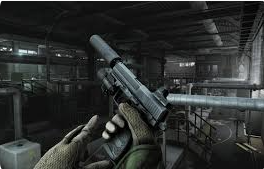The Search for Hackers Inside the Battle Against Cheats in Escape from Tarkov
The Search for Hackers Inside the Battle Against Cheats in Escape from Tarkov. Among the most immersive and intense first-person shooters ever produced is Escape from Tarkov (EFT). It penalizes players for every error by combining tactical warfare with extreme survival skills. Along with the intense firefights and high-stakes looting, a deeper conflict rages—one against hackers using the game for unfair advantage.
Cheers destroy the experience for thousands of honest players in a game where death means losing everything you brought into a raid. Using bans, anti-cheat policies, and community-driven reporting systems, Battlestate Games—the developers—have conducted an unrelenting campaign against these rule-breakers.

An Event Designed on Reward and Risk
EFT stands out in its high-risk gaming and merciless economy. Players struggle for survival, search for riches, and extract securely to retain their gains. Every medical supply, every tool, and every EFT trick counts. By eliminating the aspect of fair competition, cheaters subvert this fundamental experience when they join a raid.
- The most often used cheats in Escape from Tarkov
- Hackers take advantage unfairly by using different exploits. Among the most infamous cheats are some like.
- Wallhacks let players view foes across barriers, therefore eliminating the need for deliberate mobility or strategy.
- Instantaneously lock on enemy heads to guarantee precise accuracy for one-shot kills.
- Let cheats cover great distances in seconds and outrun gunshots at incredible speeds.
- Loot Hacks Eliminate the need to hunt for precious stuff by allowing quick access to premium riches.
- Invisibility Glitches Make hackers undetectable or impossible to kill, hence fueling one-sided conflicts.
- See also conflicts between online and traditional sports betting.
- These cheats upset the delicate equilibrium of the game in addition to providing hackers an unfair advantage. Spending hours grinding for riches and experience, players are plundered by someone abusing the system.
Stopping Thousands, Still More Showing Up
Battlestate Games routinely bans thousands of cheats. To demonstrate the community that action is being done, they sometimes post ban waves in public. Even with these initiatives, cheating never totally goes away.
Just why? Cheat developers put forth just as much effort to keep ahead of anti-cheat policies. One hack finds and is prevented, another surfaces. The developers and those seeking to break the game are in an ongoing arms struggle.
BattleEye and AI-Driven Alert Systems
- Tarkov spots suspicious activity using the commonly used anti-cheat tool BattleEye. To find trends suggesting cheating, the developers also examine player reports and in-game statistics.
- New artificial intelligence-driven technologies enable the detection of odd activity including:
- Unrealistic kill rates—that is, a player landing one hundred headshots in a single session.
- Unnatural movement patterns—that is, players traversing walls.
Extremely high rates of loot gathering.
These systems get better in detecting, but they are not perfect. Cheat developers fight continually to hide their software by constantly changing it.
Manual Investigations and Community Reports
Apart from automated technologies, Battlestate Games depends on player reports. Users of the in-game reporting system can flag dubious activities, which the team examines. Finding cheaters depends critically on community-driven investigations involving video proof.
Reporting isn’t flawless, though. False reports, lack of evidence, and the sheer volume of players make complete investigation of every case challenging.
Cheats: Sales and Distribution Methodology
Cheating is a business not only a personal problem. Sometimes for hundreds of dollars monthly, cheat developers sell hacks on private Discord channels and underground forums. Usually hidden under features meant to evade notice are these tips.
Certain vendors also provide “subscription services,” which provide continuous upgrades to maintain undetected cheks. With some players ready to pay premium rates for an unfair edge, this black market survives even with anti-cheat initiatives.
Real-money trading (RMT) and cheaters
Real-money trading (RMT) is among the main drivers for cheating. Some hackers cultivate valuable items for real money sale to other players. This makes cheating into a business where players profitably exploit the game.
Player Exodus and Frustration
The existence of cheaters causes paranoia as well. One can wonder about genuine kills: was that player simply good, or were they hacking. This uncertainty undermines faith in the game’s fair character.
The ascent of alternative solutions and private servers
Some players have demanded private servers to fight cheaters, implying situations whereby only verified or trusted people can play. Others support EFT techniques whereby cheaters are permanently prohibited from using the same computer.
What Actions Can Players Take?
- Immediately report suspicious behavior.
- Steer clear of real money in-game purchases to help to drive the cheater economy.
- Help the developers by offering comments and keeping involved in anti-cheat enhancement debates.
The Anticook Future in Tarkov
Better detection techniques, harsher sanctions, and community participation used together will help to really cut cheating. Improved in-game reporting systems, enhanced manual reviews, and sophisticated AI monitoring could all be of use.